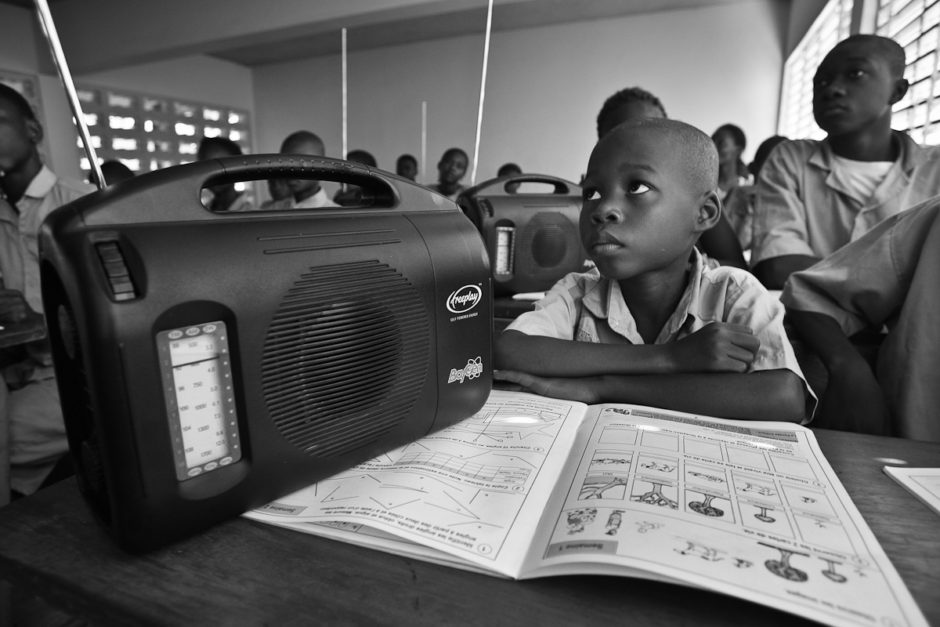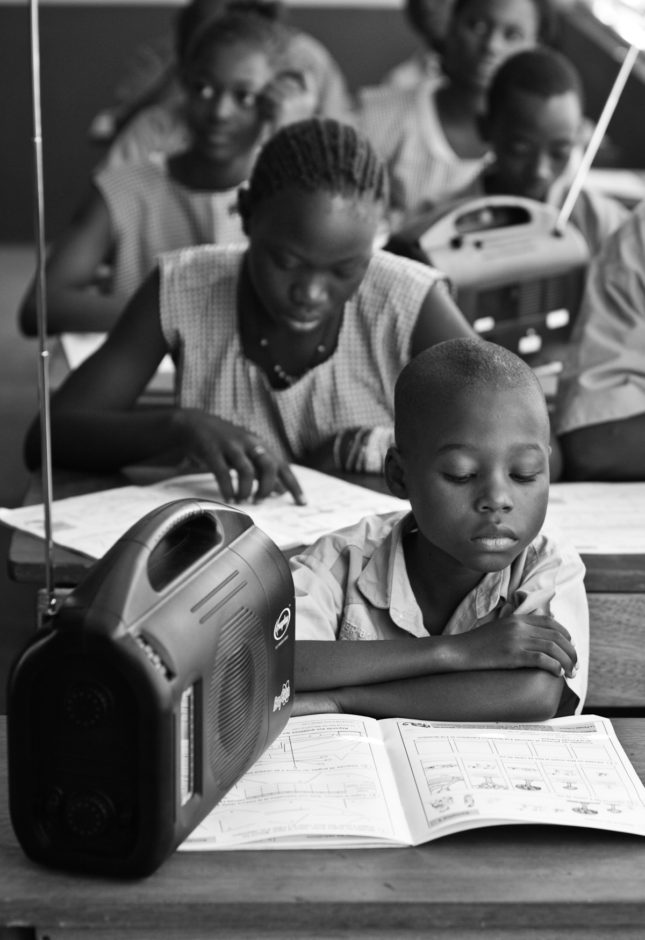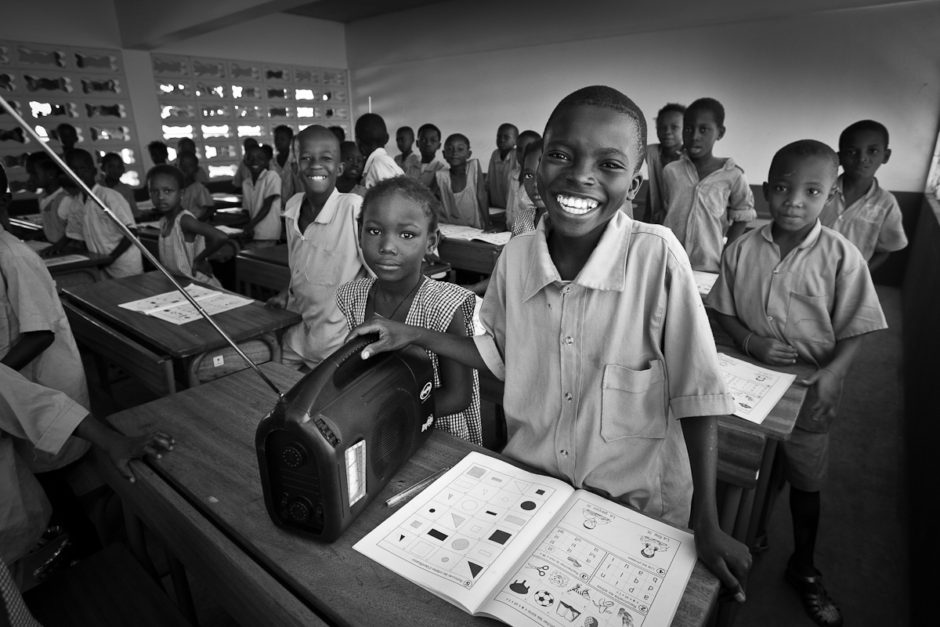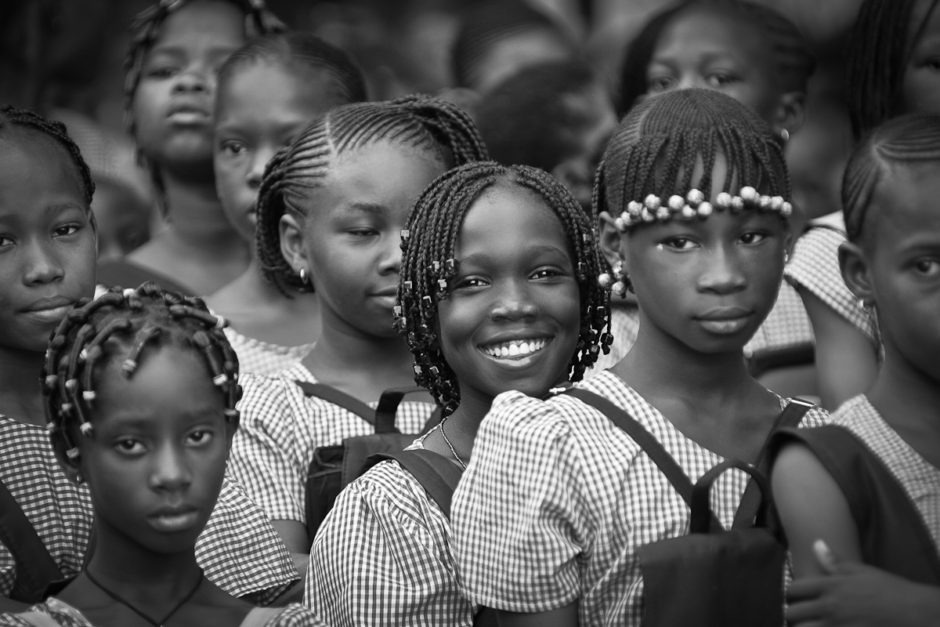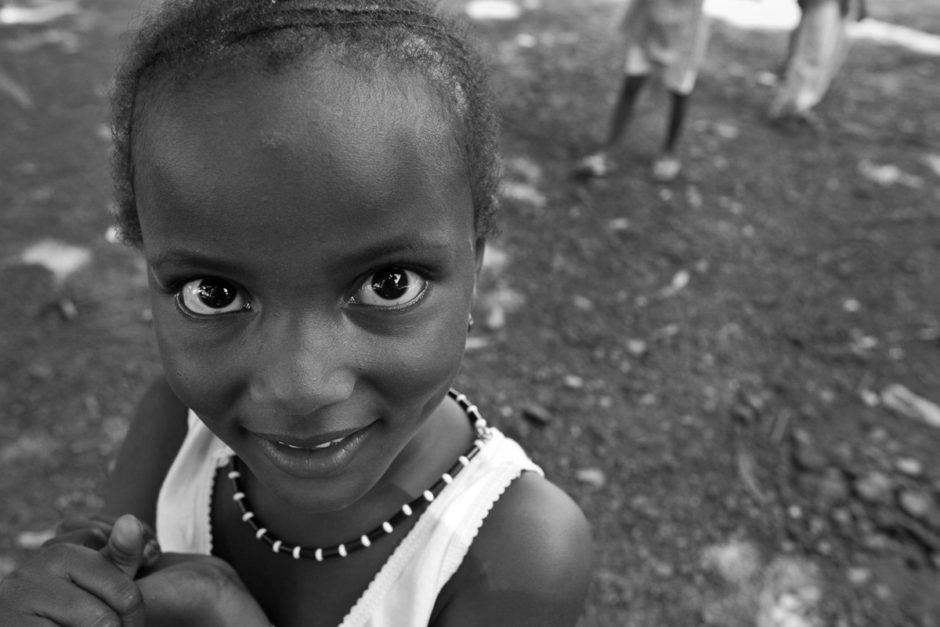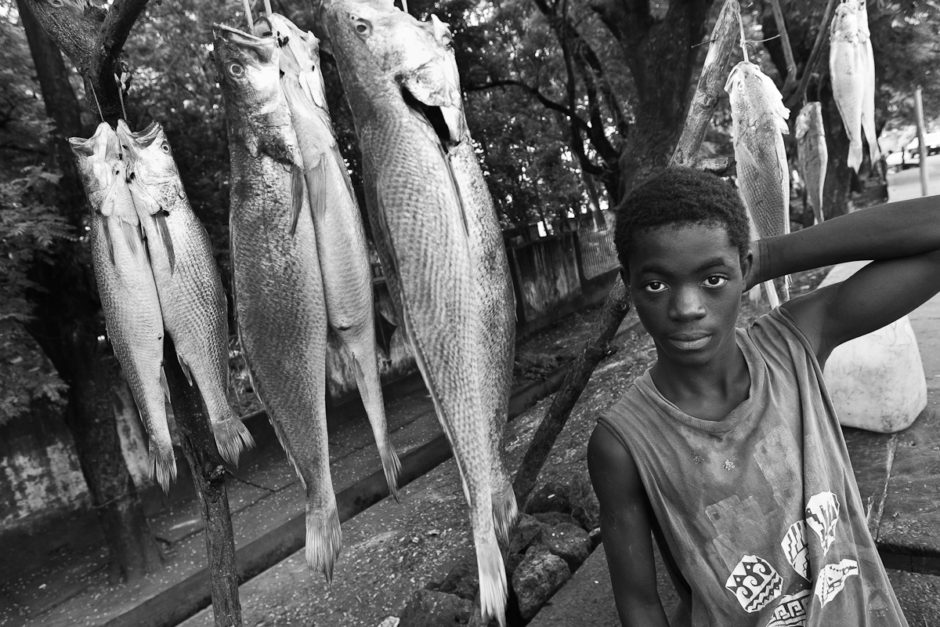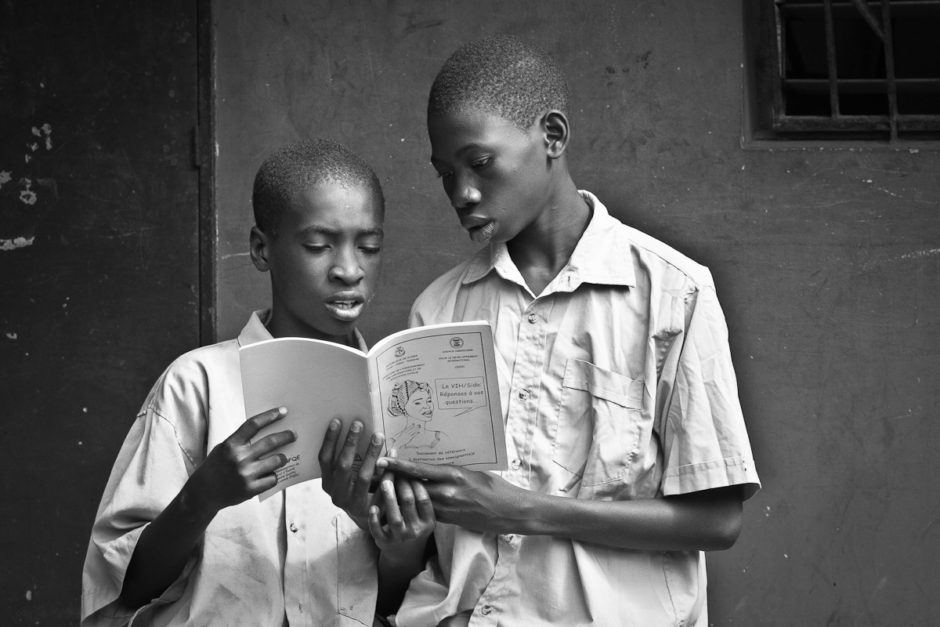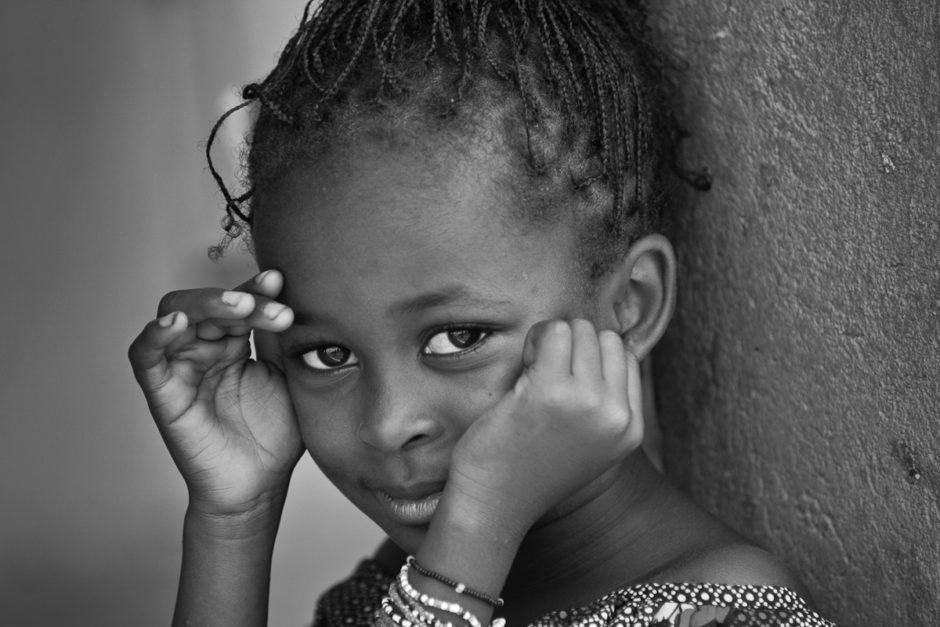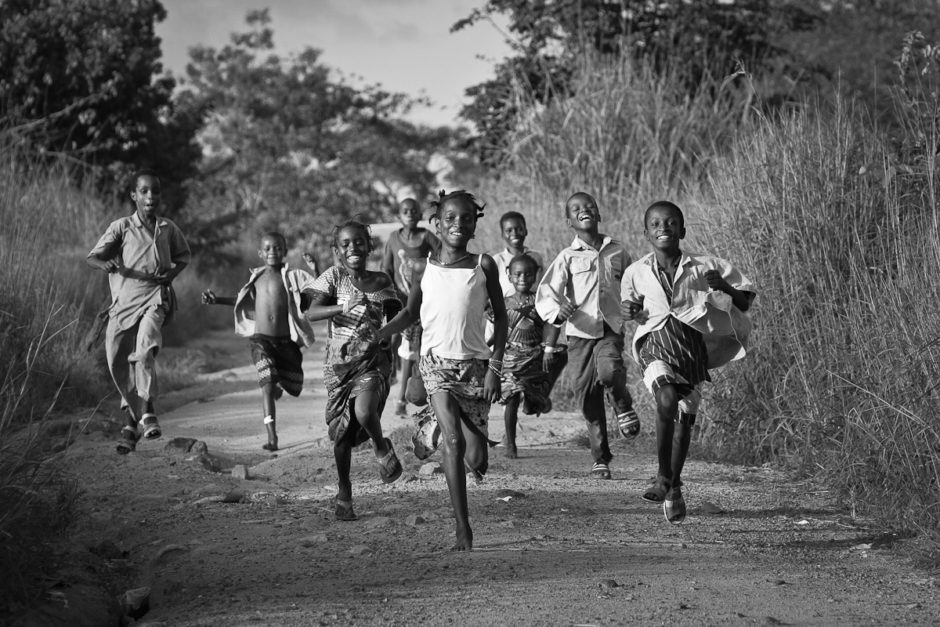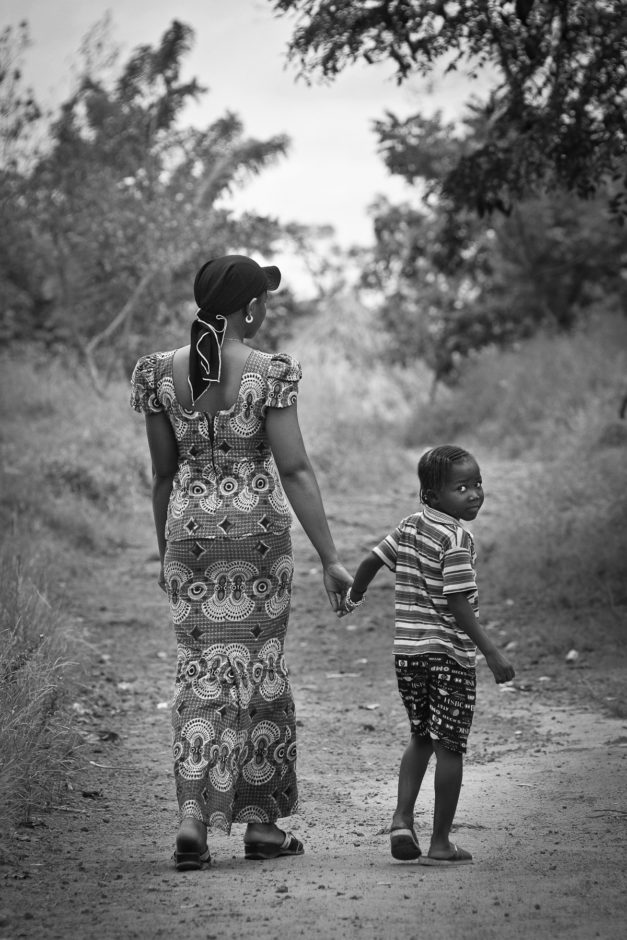The Republic of Guinea lies on the West coast of Africa between Guinea Bissau to the north and Sierra Leone to the south. The Republic of Guinea was formerly known as French Guinea.
On September 28th, 2004, I arrived in Conakry Guinea to shoot a job for the Education Development Center. I was to document one of EDC’s most effective and interesting international projects, the Radio Education or Interactive Radio Instruction program.
This radio program that began in 1985 (and still exists today) was funded by the U.S. Agency for International Development. It uses radios to educate large swaths of people, including adults and children from over 30 developing countries, that would otherwise be unable to receive a basic education, either because of war or poverty.
It was an honor and a privilege to shoot for Education Development Center in Guinea and in other locations around the world. EDC’s dedication to improving the world and combating poverty through education has been sustained throughout the organization’s entire existence. As a result of projects from 1997-2007, student enrollment in Guinea has doubled.
Since my 2004 visit to Guinea, I’ve always followed world news about West Africa, particularly Guinea and the other West African nations I had the opportunity to work in. The Ebola outbreak in 2014 but Guinea back on the world stage. Ebola hit Guinea hard, but since then, he country has been officially declared Ebola-free as of June 2016.
Travel related travel restrictions were lifted, meaning now is probably a great time to explore. Lonely Planet his this to say….
“Imagine you’re travelling on smooth highways, and then get tempted by a dusty turn-off signed Adventure. Well, that turn-off is Guinea. Little known to most of the world, this is a land of surprising beauty, from the rolling mountain plateau of Fouta Djalon to wide Sahelian lands and thick forests. Overland drivers have long been drawn here for the challenge of steering their vehicles over rocks and washed-out paths. Nature lovers lose themselves on long hikes past plunging waterfalls, proud hills and tiny villages; or by tracking chimpanzees through sticky rainforest. But the best thing about Guinea is that almost nobody else bothers to take this turn-off – meaning you’ll likely have the country to yourself.”
Indeed, back in 2004 when I visited, apart from NGO workers, the place was almost devoid of western travelers. Guinea is indeed a beautiful country with much to offer from beautiful seaside towns and villages to its cooler, upcountry hill region, awash with rivers and streams that course through the heavily wooded jungles, passing through villages with thatch roofed huts.
Speaking of thatched roofs, there was a restaurant that had a thatched roof and a rotating bar, where I had a few ice-cold cold 33 Exports, and some excellent seafood kababs. Unfortunately, I just can’t seem to remember the name, and an internet search comes up empty. So, if you go, let me know if you find it, I’d be interested to know if it’s still there, and if the seafood kebabs are as good as I remember them being.
Cheers,
Karl
Upcountry, Guinea
Outdoor fish market, Conakry
Students reading USAID supplied educational materials about HIV
Port of Conakry
Near Mamou, upcountry, Guinea



